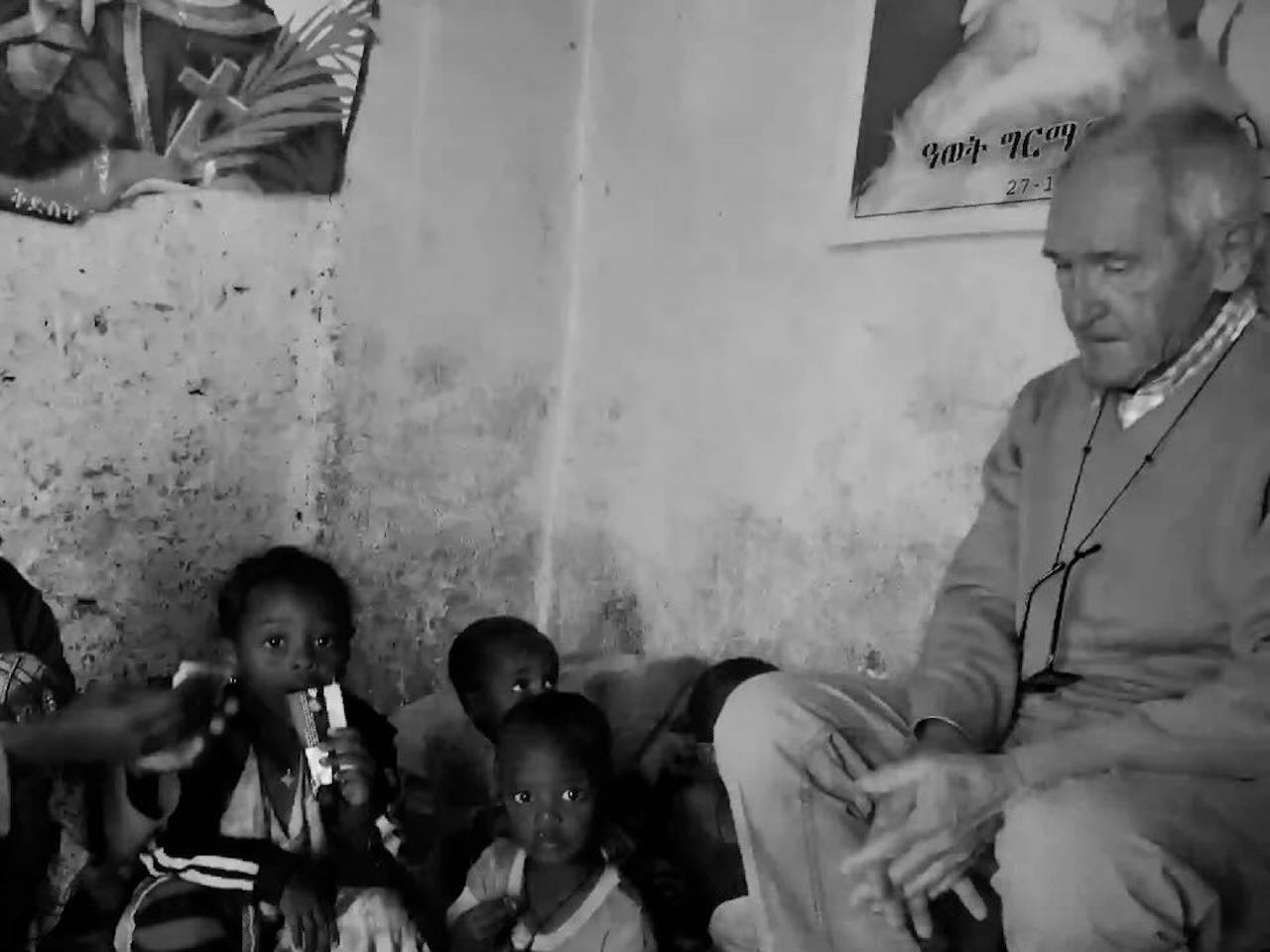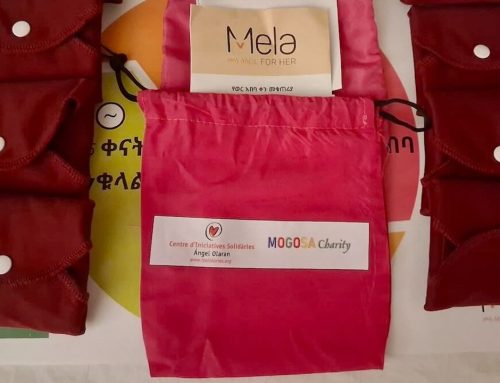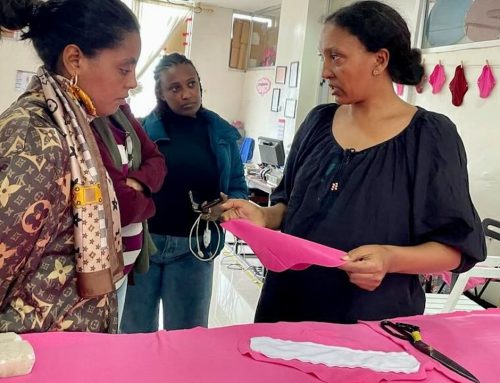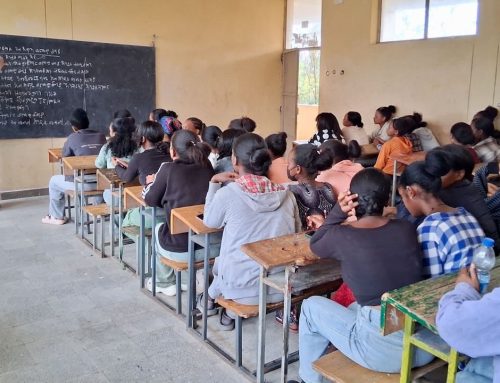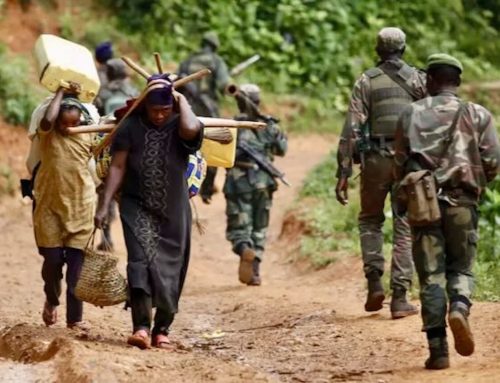Angel Olaran: “Confident, even in the absence of proof”
Writes Angel Olaran: “Confident, even in the absence of proof”, and affirms that “this minimum of confidence creates of mind in the population to ensure a peaceful sleep”
The missionary Abba Melaku reiterates, almost three months after the peace agreement in Pretoria, that the restoration of basic services continues but more slowly than desired. Ensures that “humanitarian aid is still at a very low level; the harvest of the year was very low; many families have barely come to cover the needs of two months and have re-entered the list of those in need of help. The next harvest will be in November”. Therefore, it’s necessary to start projects of “support to agriculture so that more families have access to irrigation and get rid of this shortage”.
Written by Angel Olaran: “Confident, even in the absence of proof”
What reassurance confidence gives, no matter how small it may be.
It has been almost 3 months since the long awaited meeting in South Africa concluded, with a folder full of practical objectives, hoping to make them a reality as soon as possible.
The great and long-awaited objective of the meeting was the creation of an international commission with full freedom of movement and criteria to manage and evaluate the implementation of the objectives agreed therein, as soon as possible. Although with delay, it will be a little more than 2 weeks since the commission arrived in Mekelle, but they must have done little to date.
Among the services obtained, we continue to have electricity – this already before the presence of the commission -. Telephone and internet communication has been obtained. The Ethiopian airlines reach Mekelle and Shire, but the demand for tickets is so high that, if you are not careful, it will take 3 months to get a ticket – but this right is denied to those under 45 years of age -. Added to this is the aggravating factor that the roads are not open to public traffic. Neither by bus nor by car can you enter or leave Tigray.
We have been hearing for more than a month that “tomorrow” the banks will open. It has been about 3 weeks since a small number of banks – one in Wukro – have symbolically opened their doors, offering the amount of 2,000 birr (about 40 €) per week, but only for money that has arrived at the bank in the last few days. You still have no access to the money you had in your account before the banks were closed. The prices of most medicines, foodstuffs, clothes . . . are still governed by the law of the black market.
Civil servants have not been able to collect their salaries for almost two years. The private sector, taking advantage of the opportunities that are offered from time to time, we are still able to continue paying our monthly salary every two or three months.
A few days ago Tigray received one million liters of fuel – the pre-conflict quota was 12 million liters per year. This amount is destined especially for social services: hospitals, public transport, generators. . . A liter of diesel is already 60 birr and the Wukro-Mekelle trip costs 50 birr.
As I communicated in my previous post “There are many families in need of microcredit to rebuild their lives”, humanitarian aid is still at a very low level. Personal hygiene and health are still not taken into account. All the expenses of the family are expected to be covered with the minimum amount of food that is received monthly,
Under these conditions, a year is very long. Due to the lack of fertilizers, seeds, pesticide etc. last year’s harvest was very low; many families barely had enough to cover their needs for two months and have once again joined the list of those in need of help. The next harvest will be in November.
Support for agriculture
The few families who had access to irrigation during the 10 months of drought are spared from the above-mentioned shortages. Therefore, one of our most urgent projects is to collect the water from the 2 months of rainfall – July and August – either by rehabilitating streams; making reservoirs; cementing irrigation ditches to avoid losing half of the water that flows through them. We need to repair the spillways in a couple of reservoirs, as well as some cisterns that collect rainfall from roofs. . .
Reforestation also contributes to the maintenance of rainwater, while covering the land with vegetation – biological mass – and improving the quality of the soil. And this at very little cost. During the two months of rainfall, nature offers a lot of vegetation, which is used by animals who, as they pass through it, destroy everything. We have been protecting mountainous areas from animals and people for some years now, which have been decided in advance with the municipality and the agreement of the farmers. What is born, grows without any care, especially without irrigation.
With the same type of tree, coming out of our greenhouse, we have reforested areas close to where their “brothers” are born and grow naturally, without any need of care, and ours, irrigated, cared for: the first ones succeed in almost 100 %, besides recovering lost species, and in ours, 50 % is already a success.
To protect them, a few men are paid a salary, which is already a support for their families. Having women for this work has its drawbacks, especially in terms of security, as these posts are far from the villages. In Wukro town, on two reforested plots of land, it is the women who protect them.
With the support of the regional government, we could extend this type of project throughout the region, which would also contribute to protecting air quality against atmospheric pollution.
So much vegetation will be obtained that, after 5 years, in order to keep the land clean of weeds, we will have to resort to livestock.
As I mentioned at the beginning of the letter, this minimum of confidence creates a sufficient state of mind in the population to ensure a peaceful sleep.
With my best wishes,
Angel




